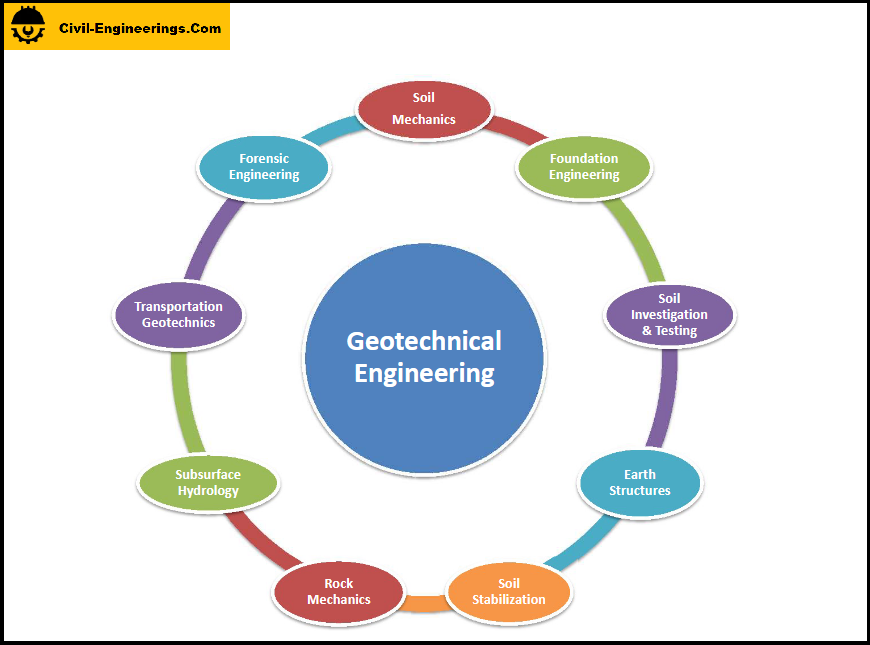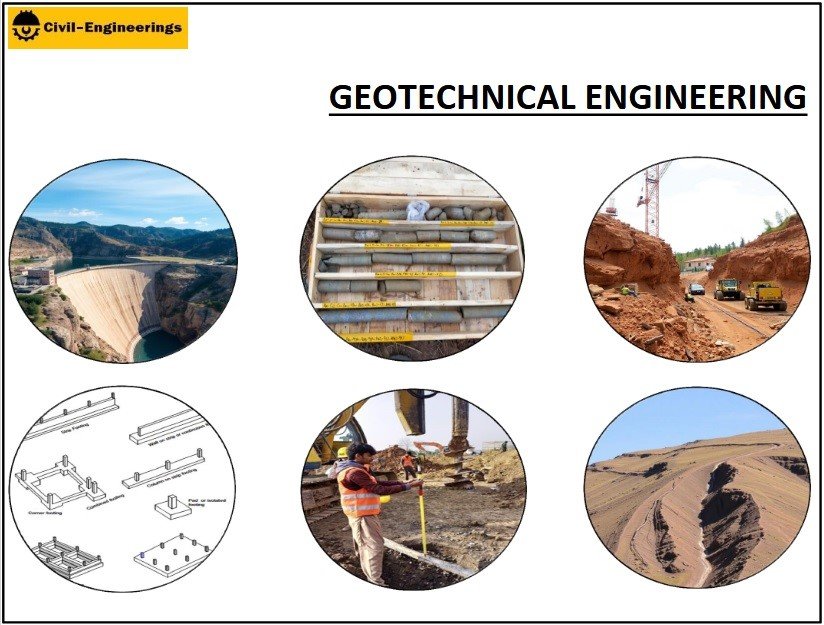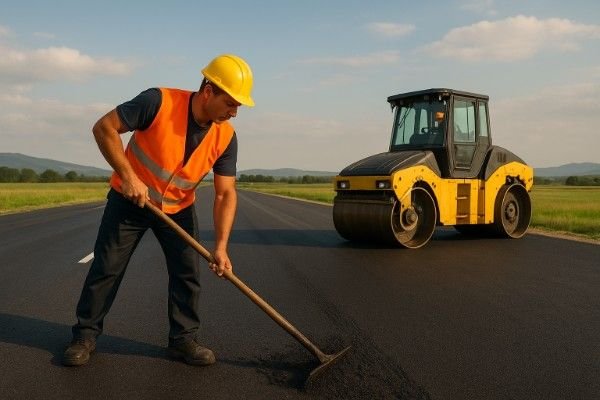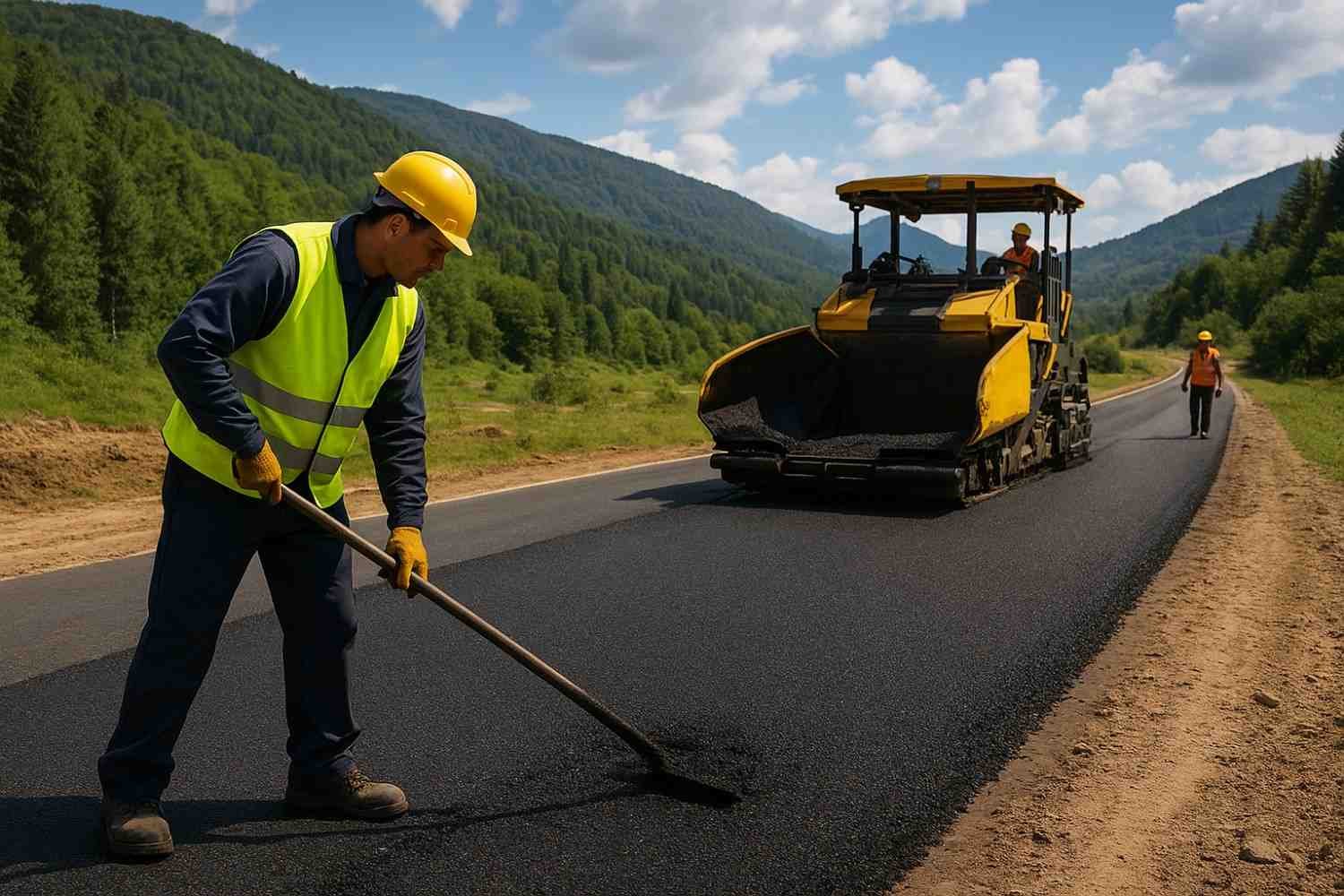Table of Contents
Introduction to Geotechnical Engineering
Geotechnical engineering is a foundational branch of civil engineering that focuses on the behavior and properties of earth materials such as soil, aggregates & rocks and underground earth conditions. Geotechnical engineers ensures the safe design and construction of foundations because Success of any construction project depends on a strong and durable foundation.
Scope of Work in Geotechnical Engineering
In the modern and rapidly developing world geotechnical engineering becomes a large branch of civil engineering. Geotechnical engineering Scope of work includes:
- Conducting research on earth materials and underground conditions
- Designing foundations for buildings, bridges, dams, and other structures
- Performing slope stability analysis and providing temporary excavation support
- Conducting material testing on-site and in laboratories
- Route selection for railways and highways
- Designing earthquake-resistant structures
- Implementing measures to prevent soil erosion and landslides
- Ground Improvement by enhancing soil properties using techniques like compaction, grouting or soil stabilization to support structures.
- Conducting geotechnical investigations
Fields of Geotechnical Engineering

Geotechnical engineering has various fields to cover all aspects related to this branch of civil engineering. These fields include soil Mechanics, Foundation Engineering, Soil Investigation & Testing, Earth Structures, Rock Mechanics, Subsurface Hydrology, Earth Retaining Structures, Transportation Geotechnics, and Forensic Geotechnical Engineering.
- Soil Mechanics
Soil mechanics as discipline of geotechnical engineering deals with the properties and behavior of soil under different conditions. In this filed soil’s strength, permeability, compressibility and other characteristics is examined to ensure that it will interact positively with structures. This field forms the foundation for designing safe and efficient construction projects. First scientific study of soil mechanics was done by French physicist Charles Augustin de Coulomb in 1773.
- Foundation Engineering
Based on soil mechanic’s studies, foundation engineering focuses on designing and construction of foundations for buildings, bridges and other structures. It ensures that structures remain stable by safe transferring loads to the ground. This field involves assessing soil conditions, selecting foundation types and addressing challenges like settlement and bearing capacity.
- Soil Investigation & Testing
Soil investigation and testing is the process of collecting and analyzing soil samples to evaluate their physical and mechanical properties. 1. Soil Investigation & Testing is done both at laboratory and on site. Examples of soil investigation include compaction test, specific gravity test, soil texture test, CPT test, CBR test, dry density test and shrinkage limit test etc.
- Earth Structures
Designing and constructing embankments, earthen dams and levees are includes in earth structures. Engineers in this field ensure these structures remain stable under various environmental conditions, such as water pressure and seismic activity.
- Soil Stabilization
Soil stabilization is the process of improving soil strength and durability to make it suitable for construction. For this purpose different techniques are used such as compaction, chemical additives and geosynthetics. Soil stabilization enhances the load bearing capacity and reduces the soil settlement or erosion.
- Rock Mechanics
Rock mechanics deals with the properties and behavior of rock materials and subsurface sedimentary strata under stress. This field is essential for designing tunnels, mines and slopes in rocky lands. Engineers analyze rock stability and develop methods to prevent rock falls and other geotechnical hazards.
- Subsurface Hydrology
Subsurface hydrology studies groundwater movement and its interaction with soil and rock. This filed is very important to manage water resources, impact of water on construction projects and addressing groundwater contamination.
- Transportation Geotechnics
Transportation geotechnics applies geotechnical principles to the design and maintenance of transportation infrastructure such as roads, railways and airports. Subgrade evaluation, pavement design and soil stabilization to ensure long term durability and safety is covered under this filed.
- Forensic Geotechnical Engineering
Forensic engineering investigates geotechnical failures, such as foundation collapses or landslides to identify causes and recommend solutions. This field is very important for preventing future failures and improving construction practices through lessons learned from past incidents.
FAQs on Civil Engineering
Laboratory Tests
- Grain Size Analysis
- Atterberg Limits Test
- Compaction Test
- Specific Gravity Test
- Permeability Test
- Unconfined Compression Test
- Triaxial Shear Test
Field Tests
- Standard Penetration Test (SPT)
- Cone Penetration Test (CPT)
- Plate Load Test
- Vane Shear Test
- Pressure meter Test
- Borehole Logging






